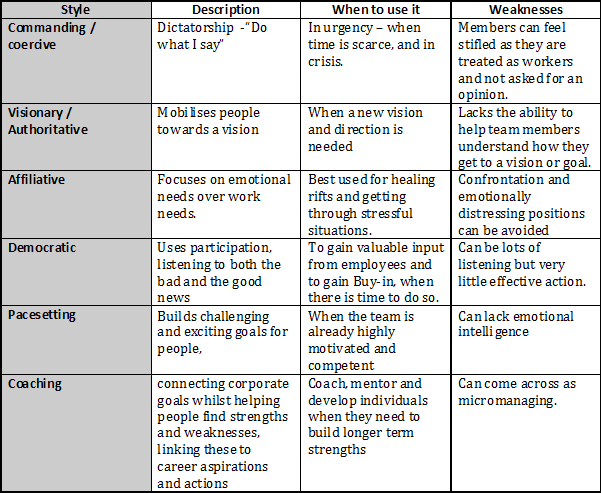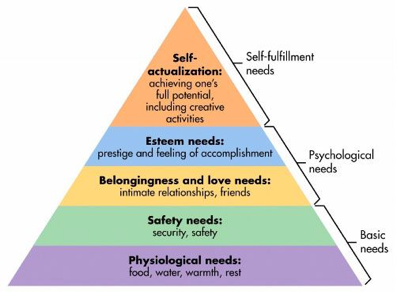Motivation in Project Management from the Project Manager’s Perspective
A project manager has do be able to plan the project, handle the stakeholders, create a risk analysis plan, handle the top management and the project team. But a topic that is often overlooked is the team motivating. The difference between a team that is highly motivated to solve a projects goal and a de-motivated team, could make the difference between a successful project, and a project that might never finish or is filled with complications. There is a growing awareness that people is one of the most important parts in a project. Since the beginning of the 2000 the focus has shifted from technical aspects(planning, budget optimizing etc.) to more people oriented aspects of project management such as motivation for instance. This applies for both practices and academic studies. [1] Motivated employees can increase productivity and efficiency. In a project a project manager that does an extra effort in motivating his employee it would increase these because a motivated team has less sick days, and absenteeism and the team members could da a extra effort to be on time. The quality of the work will also be better.[2]
There are several sources of motivating the project manager can focus on in the team. This article will show how a project manager can lead and motive, go trough some of the motivational triggers, discuss some of the limitation the project manager has to motivate, and the limitations of the sources of motivation.
Contents |
Leading and motivating

Leadership in the group does not have single formular that is the right solution. Every team is different, and their needs and desires are different. There are 6 different leadership strategies a project manager can take according to Daniel Goleman.[4] There are not one leadership strategy that is better than the other too motivate. The authoritative manager might work in some project, but in other projects the participative leader works better. The good project leader is able change and adapt to the given situation. A manager that can do that will higher the motivation.http://www.brighthubpm.com/monitoring-projects/64679-project-management-leadership-styles/
Sources of motivation
The motivation within the team member does not necessary has to come from the project manager. The motivation can be both extrinsic or intrinsic. Intrinsic motivation means that the motivation energy comes from within the person. The person has a desire, a wish to do help achieve the goal, beacuse it alligns with the persons belief and is therefore motivated. An example of this could be if the team member find the task he is assigned specially interesting, and is therefore motivated to fulfill the task efficient. Extrinsic motivation on the other hand is where the motivation energy is comming from the outside. It is in the extrinsic motivation that the project manager comes into the picture. For example can he use reward or punishment to push the team member to do a certain task. There are several ways of giving extrinsic motivation to the team member. It is important to have Marslows hiearchy of needs in mind when considering the different exttrinsic motivation.

Every member of your team has a need, something he wants. The promise of fulfillment of the needs is what drives us. Maslow's hierarchy of needs is a theory is a five-stage model that show what needs that drives us, in which order to achieve satisfaction starting from basic needs to fulfilling the human potential(self-actualization). 1. The first, the most basic need is the physiological needs. Lunch program at work could fufill this need, or having fruits available duing the day. 2. The second need is the safety needs. To make sure the team members feel safe. This could be fulfill with clear communication so the employee never feel he is unsecure if he is doing his work right, he can depand on the others in team, and so on. 3. The third step is belongingness, and love needs. At this step the group activities is an example of fulfillment of this need. Teambuilding exercises or social events are some of the activities that can fulfill this need. 4.The fourth step is esteem needs. When a group member excel in the project, a job gets done, it is important to acknowledge the work he has done. This could be done by giving the employees a higher position, giving a bonus, but also a small thing as a ‘good job’ can satisfy this need. 5.With the four other needs fulfilled the team member can now reach the highest need, self-actualization and there are feelings of joy and euphoria. This step he has to reach himself.
Feedback
Acknowledgement
Freedom with responsibility
Limitations to project motivation
References
- ↑ Eight to Late (2008). Motivation in project management. [online] eight2late.wordpress.com. Available at: https://eight2late.wordpress.com/2008/08/29/motivation-in-project-management/ [Accessed 15 Sep. 2016]. The author behind this blog is co-founder and principal of Sensanalytics. He has written two books about management practices, and his work on the blog is mainly based on research papers .
- ↑ Callofthewild. (2016). Maslow’s Hierarchy of Needs – How to Motivate Your Staff. [online] callofthewild.co.uk. Available at: http://www.callofthewild.co.uk/library/theory/maslows-hierarchy-of-needs-how-to-motivate-your-staff/ [Accessed 16 Sep. 2016]. Call of the Wild is an independently-owned, limited company that teach management techniques to companies. They have won several awards for their work.
- ↑ Edcucational Business-Articles. (2006). [online]. educational-business-articles.com.Available at: http://www.educational-business-articles.com/wp-content/uploads/six-leadership-styles.gif/ [Accessed 16 Sep. 2016].
- ↑ Goleman, Daniel. (2000). Leadership That Gets Results. "This puplication is about 6 different leadership styles. Da
- ↑ Simplypsychology. (2016). [online]. simplypsychology.org.Available at: http://www.simplypsychology.org/maslow-pyramid.jpg/ [Accessed 15 Sep. 2016].